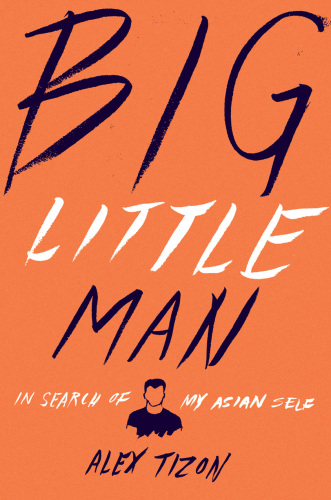
Big Little Man
In Search of My Asian Self
کتاب های مرتبط
- اطلاعات
- نقد و بررسی
- دیدگاه کاربران
نقد و بررسی

March 10, 2014
In this investigation into Asian masculinity, Pulitzer Prize–winning journalist Tizon offers a well-paced, engaging combo of history, memoir, and social analysis. Beginning with a pilgrimage to Cebu in the Philippines, where the conquering European explorer Magellan was killed by the Mactanese, Tizon recounts his troubled past growing up in an America that belittled and erased the complexities of his Asian manhood, and the effect it had on his psyche and his immigrant family (“My parents’ adulation of all things white and Western... was the engine of their self-annihilation”). He interweaves stories of Asian men forgotten or ignored by history, such as Zheng He, a 15th-century Chinese admiral who sailed around the world without the bloodlust of the Europeans who came after, as well as examinations of American attitudes toward Asian men as seen in films such as Harold and Kumar. Passages on self-imposed isolation and attempts to hide or mock his Asianness are visceral and painful. Tizon’s skill as a feature reporter serves the book well, producing a narrative that moves fluidly between subjects, settings, and gazes. Agent: Paul Bresnick, Paul Bresnick Literary Agency.

May 1, 2014
A Filipino writer explores his racial identity.Pulitzer Prize-winning journalist Tizon (Journalism/Univ. of Oregon) emigrated with his family from the Philippines in 1964, "yearning for an equal share of paradise." Achieving the American dream, they quickly discovered, required them to reject their language, culture and heritage. "Our early years in America," Tizon writes, "were marked by relentless self-annihilation." Like his parents, he came to believe that Americans were "strong and capable" and Filipinos, "weak and incapable and deserving of mockery." Facial features and body size underscored weakness: "Americans did seem to me...like a different species, one that had evolved over generations into supreme behemoths. Kings in overalls. They were living proof of a basic law of conquest: victors are better." As a child, Tizon saw Asians stereotyped as submissive, primitive, treacherous and indistinguishable from one another, lumped together racially as Oriental or, more derisively, yellow. He was especially sensitive to assumptions about Asian males, often portrayed in movies and on TV as servants or the butts of jokes; Hollywood insisted that Asian male power conform "to known cliches-sage, brainiac, martial artist." Never was a male depicted as a desirable romantic hero. Similarly, Asian women were seen as childlike and "more pliant, more sensual, more sensitive and attentive to the needs of the stronger sex." Asian women's attitudes toward Asian males reflected mainstream culture; most Asian women, Tizon noted despondently, wanted to date and marry whites. The author celebrates some substantial changes in Americans' attitudes as Asians have become more prominent in sports, entertainment and mass media. He came to understand, also, that feeling shame and self-doubt is widely shared: One friend was ashamed of being too tall, another of being too smart, and some told him "in all seriousness that they were ashamed of being white. They felt guilty, undeserving." Making peace with one's identity, Tizon concludes, transcends race.A deft, illuminating memoir and cultural history.
COPYRIGHT(2014) Kirkus Reviews, ALL RIGHTS RESERVED.

May 15, 2014
This book presents the complicated, difficult, but evolving Western perception of Asian manhood, as observed and lived by one Asian man. Filipino American and Pulitzer Prize-winning journalist Tizon adeptly weaves social and political history, sociological observation, and cultural analysis into confessional memoir. Alongside his own poignant experiences, the author relates his observations of others' responses to Asian men, considers the perils and promise of being Asian in America, and reports on sex workers and arranged unions, the portrayal of Asians in movies, and the little-known story of the great Chinese explorer Zheng He. The author unpacks the Chinese ideal of "wen wu," which maintains that manliness is equally physical and cerebral. He catalogs damaging stereotypes and pervasive assumptions about Asian men: inscrutable, effeminate, polite, brainy, exotic, less than sexually desirable, and little--always little, despite empirical evidence of the increasing height of people from stable, affluent Asian nations. The title is taken from a commentator's description of boxer Pacquiao, upon his takedown of Oscar De La Hoya, as a "big little fighter." VERDICT Bracketed by two trips to the impoverished province of Cebu in the Philippines, where explorer Ferdinand Magellan met his end and boxer Pacquiao gives hope, Tizon's candid journey into the shifting and multiplying definitions of manliness and the masculine ideal is revelatory and sobering.--Janet Ingraham Dwyer, State Lib. of Ohio, Columbus
Copyright 2014 Library Journal, LLC Used with permission.

























دیدگاه کاربران